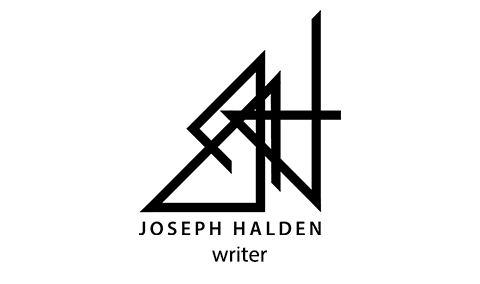
Empathy

 Today started off with me on the verge of using toothpaste as shaving cream. It’s funny how much daydreaming about your stories can affect how you function. Despite the fact that writing sometimes feels like a pet you have to take care of that turns you into a literary crazy-cat-lady, I got a bit of a material reward today. It came in the form of my first cheque from the Public Lending Rights Commission. It’s payment for my work that is available in libraries in Canada.
Today started off with me on the verge of using toothpaste as shaving cream. It’s funny how much daydreaming about your stories can affect how you function. Despite the fact that writing sometimes feels like a pet you have to take care of that turns you into a literary crazy-cat-lady, I got a bit of a material reward today. It came in the form of my first cheque from the Public Lending Rights Commission. It’s payment for my work that is available in libraries in Canada.
There’s something satisfying about getting a cheque for writing, no matter the sum. So much of this song and dance makes me feel like I’m a hack who pretends to know how to weave words into tales. Getting the letter was like someone saying, “Well, in fact you do.”
There are two projects I’m working on right now, and the common thread between the two of them is empathy, the capacity to recognize and share feelings. In one story it’s empathy towards a biological hybrid computer, and in another it’s empathy towards people who are dying of thirst. Empathy is one of those skills or abilities that is not really taught, at least directly, although presumably there are social consequences for those who are completely unempathetic.
Or maybe there used to be.
As we move into an increasingly fast-paced world, we have more freedom to choose the experiences to which we expose ourselves (and frankly, we have to). It’s quite exciting to be able to see groups, networks and places to fit in for almost any like or hobby imaginable. On the one hand it offers a place for people who may not have been able to find acceptance elsewhere. The plurality of expression is a beautiful facet of the human race that is in many ways blossoming.
On the other hand, with so much going on all the time, I’ve picked up a noticeable tendency (in myself as well) to put blinders on to the things that we don’t feel we fit into. We have the freedom to make zero effort to understand or to empathize with people we meet on the streets, with people we may disagree with on facebook, or wherever there is a traffic of people with differing views.
Is this because the world has become a bigger place, and we don’t see the need to waste time with someone so clearly different from ourselves? Is it because it’s become much easier to ignore, unfriend, block or disregard anyone who disagrees without attempting to understand them?
There is one definite cause for a lack of empathy, and I have observed it often enough that it bears mentioning. The drive for independence and the encouragement of people to speak up for themselves has been very strong over the past several years–how long I’m not entirely sure. The promotion of assertiveness and self-esteem is excellent and it has given voice and strength to many who would have otherwise continued their existences in painful silence. What is not emphasized with this quality, however, is the degree to which we should strive for assertion.
Extreme assertion is aggressive, unempathetic and unsympathetic. When someone speaks up for their rights without questioning whose rights he may be stepping on in the process, I believe it can lead to just as bad consequences as not speaking up in the first place–albeit for someone else. And that’s the core of the problem–we tell people we need to speak up for ourselves, but we rarely mention the other guy.
Selfishness is often misconstrued as independence, and I’ve written about this idea before. As someone who is categorically empathetic (it was one of my strengths in the Gallup StrengthFinder test) I see people over and over again who seem kind-hearted but lack the empathy to see when they have crossed the line and are walking all over someone else.
“Well,” one might say, “that’s when the other person is supposed to speak up.” At what point does mutual assertiveness degenerate into a shouting match? If you are better at asserting yourself than I am, and we both are completely incapable of seeing the other’s perspective, who wins? Whose rights are more or less valid?
I explore this with the antagonist in “Folds of Ice.” He is the epitome of empathetic, but he sees so much and ends up understanding the human race a little too well, knowing only the pain that is expressed on both sides of an argument. He ends up being disgusted with the suffering he’s seen, and tries to recreate a suburban utopia with people he judges to be worthy of entry. His form of classism is monstrous in the story: he’s smuggling Canada’s water supply in order to feed his need, resulting in thousands of people dying of thirst along the way. However, his “group” is not that different from groups we see in non-fiction.
In my other story, “A Song for Mona,” the antagonist’s lack of empathy results in a catastrophic event that nearly kills all of the heroes. Here the protagonist then offers forgiveness. She is someone who is again blessed with such a strong sense of empathy that she can see the motivations and driving forces behind the antagonist’s decisions.
I don’t know why this topic interests me so much, or why this month seems to be “Empathy Month” for me and my writing. It may be because I have struggled to shout above the noise and not get trampled in many assertion contests. Or maybe it’s because I recognize a growing need to value and emphasize this quality in ourselves. There are people who are singing mantras of “accept thyself.” I would have thought this would lead to an acceptance of others, but that’s (maybe not surprisingly) not the case. Maybe the mantra should be shortened to “accept.”
In my research travels, I came across this site, and realized I’m not alone in my empathic emphases (hey! I found a group!). In fact, I ended up using the empathy symbol in “Folds of Ice” and it is the featured image of this post. I like it. It’s simple, has a clear meaning and no strings attached. Try to know and understand someone else. That’s all. Extend your hand, open your mind, and who knows how far we can go.

Hal what you’re describing is/was a definitive shift in political philosophy that took place throughout much of the world known as individualism. Throughout most of history societies have been organized through subjugation to a theology, monarchy, or other higher power–but starting with the renaissance and then increasing as democracies became more liberal we saw the rise of the individual, specifically the autonomous individual free from subjugation or control by the state or church. so this assertiveness you’re referring to was a definitive response to centuries of control and subjugation. At its extreme, individualism asserts that we haven an absolute right to put the ‘blinders’ on that you’re referring to. However, although this movement was an appropriate pendulum swing away from ongoing subjugation, there are definitely arguments to be made that the pendulum has swung too far! But just keep in mind that the ‘selfishness’ or ‘independence’ you’re referring to was a gradual, and in my mind, necessary response to a long history where no one save a very few had any right to this kind of assertiveness.